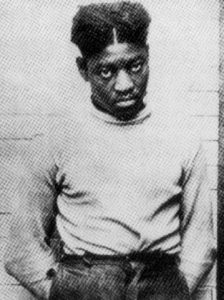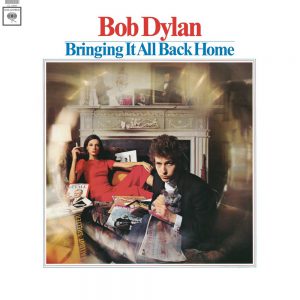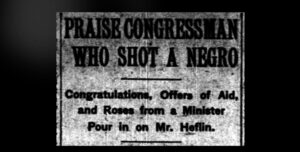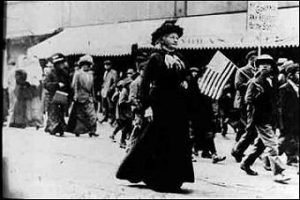March 27 Peace Love Art Activism
BLACK HISTORY
Charleston, S.C
March 27, 1861: just weeks before the beginning of the Civil War, free African Americans in Charleston, S.C., staged “ride-ins” over being denied access to streetcars. (BH, see Apr 16; Charleston, see May 1)
President Andrew Johnson
March 27, 1866: President Andrew Johnson vetoed a civil rights bill that would later become the 14th Amendment to the Constitution, conferring full US citizenship on all slaves. (see May 1)
United States v. Cruikshank
March 27, 1876: the Supreme Court had heard arguments in United States v. Cruikshank on March 31 and April 1, 1875. In its ruling on this day, the Supreme Court dismissed the charges against the three white men, ruling that the Fourteenth Amendment protects only against intentionally discriminatory state acts, not the acts of one citizen towards another not clearly motivated by racial animus. This ruling severely limited the federal government’s role in protecting black citizens from racially-motivated violence, especially at the hands of white terrorist groups intent on restoring whites’ racial dominance in the post-civil war South. (US Constitution dot org article) (see June 17)
Louis Lundy shot
March 27, 1908: Alabama Representative James Thomas Heflin shot Louis Lundy, a Black man, after he allegedly cursed in front of a white woman while riding on a Washington, D.C. streetcar. The congressman claimed that Mr. Lundy’s cursing was “raising a disturbance,” and received an outpouring of support from the white public and his fellow representatives after shooting Mr. Lundy through his neck. He was never held accountable for shooting Mr. Lundy. [EJI article] (next BH, see Mar 30)
”SCOTTSBORO BOYS”

March 27, 1933: Haywood Patterson’s second trial began before another all-white jury. Ruby Bates testified that neither she nor Victoria Price had been raped on the Southern Railway. (see Scottsboro for expanded story)
Montgomery Bus Boycott
March 27, 1956: the Alabama Attorney General filed a motion urging dismissal of the Browder v. Gayle federal suit. (B v G, see June 5; see Montgomery for expanded story)
Rev. Billy Graham
March 27, 1956: Rev. Billy Graham, a conservative Protestant minister from North Carolina, was just beginning to emerge as the unofficial “minister” to U.S. presidents. On this day, he advised President Dwight D. Eisenhower to “stay out” of the growing civil rights controversy. Eisenhower did not need much persuading, as he did not support the Supreme Court’s historic Brown v. Board of Education decision of May 17, 1954. (Eisenhower sent federal troops to Little Rock, Arkansas, on September 25, 1957, to ensure the integration of Central High School, but he did so only because of the violent resistance to a lawful court order. (see Mar 29)
School Desegregation
March 27, 1962: Archbishop Joseph Francis Rummel of Louisiana, called for all Roman Catholic schools in New Orleans to end their segregation policies. (Know Louisiana dot org article on Rummel) (BH, see Apr 3; SD, see September 2, 1963)
Rev. James Orange
March 27, 1965: a group of about 200 protesters, black and white, led by the Rev. James Orange of the SCLC marched to the Dallas County courthouse in Selma. The Rev. James Bevel told them, “[Viola Liuzzo] gave her life that freedom might be saved throughout this land.” (BH, see Apr 2; see Viola for expanded story)
Alton B. Sterling
March 27, 2018: Louisiana Attorney General Jeff Landry announced that police officers would not be prosecuted by the state authorities in the fatal shooting of a Alton B. Sterling on July 5, 2016.
Landry’s statements were similar to the Justice Department’s findings (see May 2, 2017) and defended the conduct of the officers, saying, for example, that their efforts to gain control of Sterling’s hands were “well-founded and reasonable under the circumstances and under Louisiana law.” Landry also said the officers were justified in their concern about whether Mr. Sterling was armed. (Sterling, see Mar 30)
Stephon Clark
March 27, 2018: hundreds of protesters temporarily took over the main foyer at Sacramento City Hall to protest the death of Stephon Clark, who was fatally shot by two Sacramento police officers in his grandmother’s backyard while they investigated a vandalism complaint.
Xavier Becerra, the state’s attorney general, announced that his office would oversee the investigation into Clark’s death and would review the department’s training and protocols. (B & S and SC, see Mar 30)
March 27 Peace Love Art Activism
US Labor History
Feminism
March 27, 1904: Colorado state authorities ordered Mary Harris “Mother” Jones to leave the state. She was accused of stirring up striking coal miners. (Labor, see Apr 25; Feminism, see March 2, 1907)
March 27 Peace Love Art Activism
see March 27 Music et al for expanded blog
Roots of Rock
Sun Records
March 27, 1952: Sam Phillips began Sun Records, a division of Sun Entertainment Corp, as an American independent record label. (see January 4, 1954)
Technological Milestone
March 27, 1958: CBS Laboratories announced a new stereophonic record that was playable on ordinary LP phonographs, meaning, monaural. In stereo, on the proper equipment, a new rich and fuller sound was heard. It eventually became a standard for record and equipment buyers. (see December 10, 1959)
Bob Dylan
 March 27, 1965: Dylan released Bringing It All Back Home, his fifth studio album. He had recorded between January 13 – 15, 1965
March 27, 1965: Dylan released Bringing It All Back Home, his fifth studio album. He had recorded between January 13 – 15, 1965
The album’s cover photographed by Daniel Kramer features Sally Grossman (wife of Dylan’s manager Albert Grossman) lounging in the background. There are also artifacts scattered around the room, including LPs by The Impressions (Keep on Pushing), Robert Johnson (King of the Delta Blues Singers), Ravi Shankar (India’s Master Musician), Lotte Lenya (Sings Berlin Theatre Songs by Kurt Weill) and Eric Von Schmidt (The Folk Blues of Eric Von Schmidt). Dylan had “met” Schmidt “one day in the green pastures of Harvard University” and would later mimic his album cover pose (tipping his hat) for his own Nashville Skyline four years later. (see Apr 12)
Supremes
March 27 – April 9, 1965: “Stop! In the Name of Love” by the Supremes #1 on the Billboard Hot 100.
Fear of Rock
March 27, 1971: New York radio station WNBC banned the song ‘One Toke Over the Line’ by Brewer & Shipley because of its alleged drug references. Other stations around the country followed. (see April 28, 1982)
Jerry Garcia
March 27, 1973: police arrested Jerry Garcia after finding cocaine and LSD in his car after being busted for speeding in New Jersey. (see January 7, 1979)
March 27 Peace Love Art Activism
Technological Milestone
March 27, 1953: the ban on manufacturing of color TVs (due to conflict in Korea) was lifted. (see Apr 7)
March 27 Peace Love Art Activism
Cold War
Dalton Trumbo
March 27, 1957: “Robert Rich” won the Academy Award for Best Original Story for the 1956 film, The Brave One. At the Oscars ceremony, however, no “Mr. Rich” appeared to accept the award. “Rich” was the pseudonym for Dalton Trumbo, who had been blacklisted because of his political views and his refusal to answer questions before the House Un-American Activities Committee (HUAC), on October 28, 1947. While blacklisted, Trumbo wrote a number of screenplays anonymously or under pseudonyms. (San Francisco Chronicle obituary) (Red Scare & Trumbo, see May 2)
March 27 Peace Love Art Activism
Native Americans
March 27, 1973: Marlon Brando boycotted the Academy Award ceremonies and sent Sacheen Littlefeather, a Native American activist who presented a speech on his behalf for his performance in The Godfather as a protest of the treatment of Native Americans by the film industry. There was a mixed reaction to her/Brando’s letter. (2013 article on Littlefeather)
Clint Eastwood later poked fun at the statement
March 27 Peace Love Art Activism
Fourth Amendment
Tennessee v. Garner
March 27, 1985: the US Supreme Court held that, under the Fourth Amendment, when a law enforcement officer is pursuing a fleeing suspect, the officer may not use deadly force to prevent escape unless “the officer has probable cause to believe that the suspect poses a significant threat of death or serious physical injury to the officer or others.” (Oyez article) (see June 20, 1991)
March 27 Peace Love Art Activism
Calvin Graham
March 27, 1988: Too Young to be a Hero, a made-for-TV movie, starring Rick Schroder (age 17), tells the story of Calvin Graham. Graham received $50,000, but 50% went to two agents, and 20% went to a writer of an unpublished book. (see Graham for expanded story)
March 27 Peace Love Art Activism
Iraq War II
Sen John McCain
March 27, 2007: Sen John McCain claimed progress in Iraq. McCain tells CNN’s Wolf Blitzer: “General Petraeus goes out there almost every day in an unarmed humvee. I think you oughta catch up. You are giving the old line of three months ago. I understand it. We certainly don’t get it through the filter of some of the media.” He later acknowledges, “There is no unarmored humvees. Obviously, that’s the case.” [CBS, 4/8/07] (see April 1)
March 27 Peace Love Art Activism
Sexual Abuse of Children
March 27, 2012: Msgr. William J. Lynn, 61, went on trial. He was the first Roman Catholic supervisor in the country to be tried on felony charges of endangering children and conspiracy — not on allegations that he molested children himself, but that he protected suspect priests and reassigned them to jobs where they continued to rape, grope or otherwise abuse boys and girls. (see Mar 29)
March 27 Peace Love Art Activism
Religion and Public Education
In God We Trust
March 27, 2012: Bradley Johnson, Petitioner v. Poway Unified School District, et al. The US Supreme Court declined to hear (thus upheld) a Ninth U.S. Circuit Court of Appeals decision re a San Diego County school district’s ordering a high school math teacher to remove large banners declaring “In God We Trust” and “God Shed His Grace on Thee.” On September 13, 2011 in a 3-0 ruling the appeals court said that those inscriptions and others that teacher Bradley Johnson displayed on his classroom wall amounted to a statement of religious views that the Poway Unified School District was entitled to disavow. (Law dot Justia dot com article)
Nampa Classical Academy vs. Gosling
March 27, 2012: Nampa Classical Academy vs. Gosling, 11-786. The US Supreme Court declined to hear (thus upheld) a Ninth US Circuit Court of Appeals decision that ruled that Idaho’s Public Charter School Commission acted legally when it prohibited a charter school from using religious materials as textbooks. The Nampa Classical Academy said it was using the Bible and other spiritual texts for cultural education, not religious indoctrination. But the appeals court said the state was entitled to ban the books as texts in order to avoid “governmental promotion of religion.” (see November 19, 2013)
March 27 Peace Love Art Activism
Nuclear/Chemical News
March 27, 2017: saying the time was not right to outlaw nuclear arms, the United States led a group of dozens of United Nations members that boycotted talks at the global organization for a treaty that would ban the weapons.
“There is nothing I want more for my family than a world with no nuclear weapons,” Ambassador Nikki R. Haley of the United States told reporters outside the General Assembly as the talks began. “But we have to be realistic. Is there anyone who thinks that North Korea would ban nuclear weapons?”
The talks, supported by more than 120 countries, were first announced in October and were led by Austria, Brazil, Ireland, Mexico, South Africa and Sweden. Disarmament groups strongly support the effort. (see Mar 29)
March 27 Peace Love Art Activism
DEATH PENALTY
March 27, 2017: the Supreme Court tightened its rules on capital punishment ruling that Texas — the nation’s leader in executions — could not use a decades-old definition of intellectual disability to determine who lives and who dies.
The 5-3 decision was another in a series of high court rulings intended to eliminate differences in how states decide who is disabled — and therefore ineligible for the death penalty under a 2002 precedent — and who is not.
The case involved a Bobby James Moore. His case dated back to 1980, when he shot and killed a grocery store clerk during a botched robbery. He was twice convicted, then found to be intellectually disabled, but Texas’ highest criminal court overturned that finding, citing its own precedent, which is based on a 1992 definition of intellectual disability. His case now returns to Texas for further consideration. (see Apr 14)
March 27 Peace Love Art Activism
Cannabis
New Jersey 1
March 27, 2018: NJ Gov. Phil Murphy announced major changes to the State’s medical marijuana system. The system had been limited to such conditions as multiple sclerosis, ALS, epilepsy, cancer, AIDS and others.
Murphy added anxiety, migraines, chronic pain and tourette’s to the list. He lowered the cost of participation from $200 to $100, or just $20 for veterans, seniors and the disabled. He also took a number of steps to expand access to, and the number of, dispensaries. (see Mar 29)
New Jersey 2
March 27, 2019: the New Jersey State Appeals Court ruled that New Jersey employers could not fire workers because they were medical marijuana patients. The Court said that such patients—as long as they were not using the drug or under the influence at work—were protected by the State’s law against discrimination.
The decision was based on a discrimination lawsuit filed by Justin Wild, 41, a man diagnosed with cancer who was fired from his director’s job at the Feeney Funeral Home in Ridgewood, NJ in 2016.
Appellate Court Judge Clarkson Fisher Jr said that the state Law Against Discrimination did require employers to accommodate people with disabilities, like Wild, whose doctor approved his use of medical cannabis.
He wrote in the decision, “It would be ironic indeed if the Compassionate Use Act limited the Law Against Discrimination to permit an employer’s termination of a cancer patient’s employment by discriminating without compassion,”
The NJ Superior Court had ruled that the New Jersey Compassionate Use Medical Marijuana Act, the 2010 state law creating the program, did not require employers to make accommodations on the job. (see Cannabis for expanded cannabis history)
March 27 Peace Love Art Activism
Immigration History/Census
March 27, 2018: at least 12 states signaled that they would sue to block the Trump administration from adding a question about citizenship to the 2020 census, arguing that the change would cause fewer Americans to be counted and violate the Constitution.
The New York State attorney general, Eric T. Schneiderman, said he was leading a multi-state lawsuit to stop the move, and officials in Connecticut, Delaware, Illinois, Massachusetts, New Jersey, New Mexico, Oregon, Pennsylvania, Rhode Island and Washington said they would join the effort. California had filed a separate lawsuit on March 26. (IH, see Mar 29; Census, see January 15, 2019)
March 27 Peace Love Art Activism
Healthcare
March 27, 2019: Judge James Boasberg of the U.S. District Court for the District of Columbia struck down a major health care priority for President Trump’s administration when Boasberg ruled that requiring Medicaid enrollees to work in order to qualify for benefits violates the purpose of the health care program for low-income people
On January 11, 2018, the Trump administration invited states to impose these requirements on Medicaid beneficiaries for the first time. Since then, the federal government had approved work requirements in eight states and was considering applications in seven more.
In two opinions issued Boasberg sided with plaintiffs who argued that work requirements do not further the Medicaid program’s statutory purpose, which is to provide access to health care for people with low incomes. (see Apr 1)
March 27 Peace Love Art Activism
TERRORISM
March 27 2019: James Fields, who was convicted of killing Heather Heyer by ramming his car into a crowd protesting a white supremacist rally in Charlotteville, Virginia on August 12, 2017, pleaded guilty in his federal hate crimes case.
Fields, 21, pleaded guilty to 28 federal counts of hate crime acts causing bodily injury and involving an attempt to kill, and one count of a hate crime act that resulted in the death of Heather Heyer.
Each count carried a maximum sentence of life in prison. Under the plea agreement, U.S. prosecutors said they would not seek the death penalty. (see May 23)





